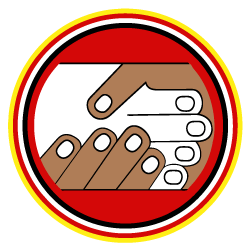What is an Urban Aboriginal Strategy?
Across Canada, Aboriginal Peoples living in urban centres are working together to strengthen their families and communities, and their social and economic opportunities. In some cases, the Government of Canada provides funding to communities to support their work.
In North Bay, we are building our strategy from the ground up, with our community, through the relationships we developed and the research we conducted over the course of two years. Today, working with community resources and partners, the overall goal of our strategy is to become the voice of Aboriginal Peoples in North Bay.
How did North Bay’s Urban Aboriginal Strategy develop?
Driven by urban Aboriginal communities and the Ontario Federation of Indigenous Friendship Centres, the goal of the 2007 Urban Aboriginal Task Force Study was to develop a nuanced understanding of the strengths and assets of five urban Aboriginal communities in Ontario. In 2012, North Bay became involved when the study expanded to include three more communities. The North Bay site adopted the name, Urban Aboriginal Communities Thrive (U-ACT). Its goal was to further mobilize members of the Aboriginal and non-aboriginal communities to work together to address racism, promote cross-cultural learning, and increase awareness of, and respect for, Aboriginal culture.
Who is driving the strategy?
Our Action Circles drove U-ACT and now they are driving the strategy. The Community Action Circle (CAC) is made up of individual members from both Aboriginal and non-aboriginal communities, as well as representatives from social service agencies, business, education, healthcare, law enforcement, governments and dedicated community members. Half of the original CAC was comprised of non-Aboriginal members and fostered unique cross-cultural
learning opportunities. Both communities provided positive feedback saying they felt more connected and had a better understanding of Aboriginal culture. Through the Youth Action Circle and Elder Teas, our Elders and youth also played important roles, making huge contributions, offering leadership, and enthusiastically participating in many parts of the project.
What happened next?
As U-ACT unfolded, the team realized that the research project was becoming a lesson in community engagement and community development, a blueprint for building and sustaining momentum.
In January 2015, the project report, Walking the Red Road, Our community’s journey to help each person live a good life , was released at a big community celebration. Highlighting how we worked together, what was learned along the way, and sharing North Bay’s model for community development and its action plan, the report has brought great pride to the community. Click here to access the report:
What is the Action Plan?
1. Stay on the Path – keep the momentum going and implement the North Bay Community Development Model.
2. Act on Community Priorities – demonstrate that community collaboration works and address priorities like culturally safe services and support initiatives primed for action like housing.
3. Increase Capacity – secure funding and supports to establish a more sustainable infrastructure and become an Urban Aboriginal Strategy site.
In order to implement the Action Plan, the North Bay Indian Friendship Centre applied for funding from the Ontario Trillium Foundation and the Ontario Ministry of Aboriginal Affairs. Thanks to their generous support, U-ACT evolved into North Bay’s Urban Aboriginal Strategy.
Annual Reports
Our annual reports highlight how we worked together, what was learned along the way, and share North Bay’s model for community development and its action plan, these report has brought great pride to the community. Click below to download the annual reports.
Community Action Circle meetings are continuing! For more information, please contact the Urban Aboriginal Strategy Coordinator:
Nusha Ramsoondar:
UABSC@NBIFC.ORG
705-472-2811 EXT 208
